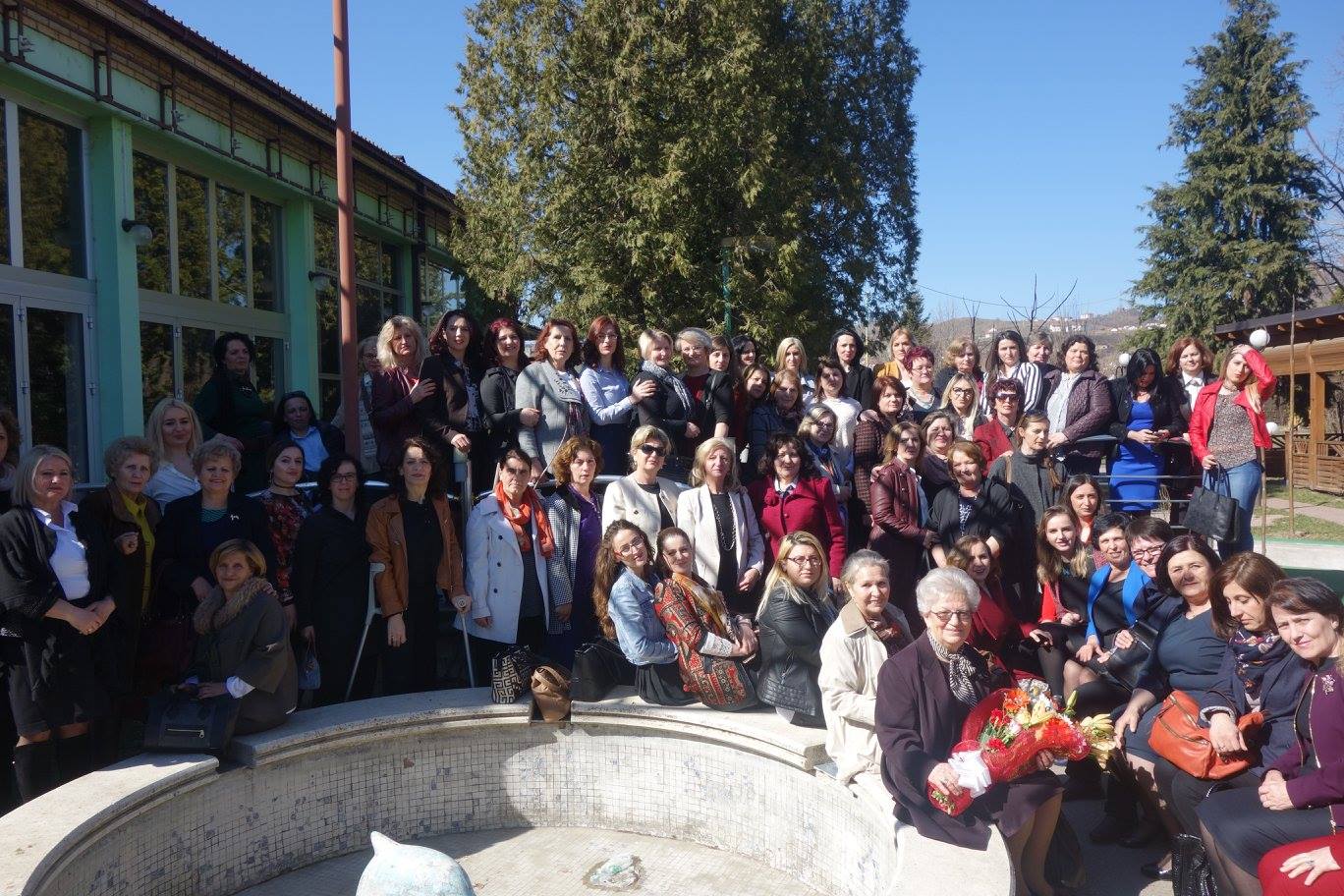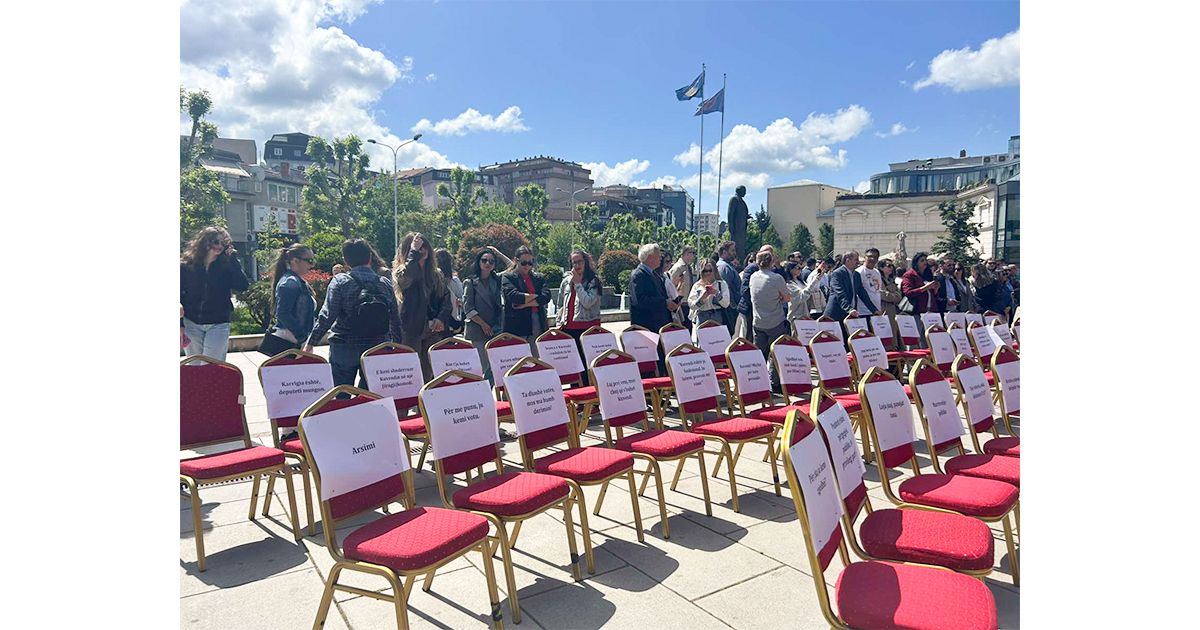On 4 March 2017, Kosovo Women’s Network (KWN) in cooperation with women from Mitrovica, also host of this event, organized the meeting of Kosovo Lobby for Gender Equality (KLGE). The topic of this meeting was “The advocacy strategy for 2017”. This meeting gathered 69 women and girls, including gender equality officers, municipal assembly members and representatives of KWN’s member organizations from different municipalities around Kosovo and KWN’s staff members.
Vetone Veliu and Ajnishahe Haziri, members of KLGE in the Municipality of Mitrovica in their opening speeches thanked the Lobby for the opportunity they got to be the hosts, as well as thanking people present for their participation. Among other, they presented the advocacy activities in the Municipality of Mitrovica, emphasizing the good cooperation among Women’s Association in Mitrovica, the Office for Gender Equality and the women municipal assembly members.
This group, among a lot of the advocacy activities and initiatives that they have realized, as achievements they listed: the advocacy for removing taxes for women in business; the neighborly communication on building peace in North Mitrovica; advocacy activities regarding local elections on November; collecting financial contributions in order to buy the mammography machine; the successful advocacy for three girls from Rashan village to continue education free of charge; advocacy and trainings with women where two of them got grants; and a lot of other successful activities.
After this presentation, Mrs. Remzije Nimani, the first member of the parliament from Mitrovica at the Republic of Kosovo, greeted participants, appreciating their hard work on improving the position of women, especially on the decision making and peacemaking processes. Meanwhile, Safete Rogova, actress and women’s rights activist, greeted women and girls, reciting a poetry dedicated to women.
In the afternoon, Igballe Rogova, Executive Director of KWN, moderated the second part of the meeting, where it was discussed for the activities undertaken in different municipalities regarding the Lobby’s advocacy strategy for 2017.
Emphasizing the power that KLGE has on achieving results on advocating for positive changes, the municipalities of Peja, Dragash, Ferizaj, Prishtina, Istog, shared information for different initiatives for which they advocated in the last months.
The next KLGE meeting will most probably be organized in the Municipality of Dragash.
This meeting was organized with financial support by the European Union Office in Kosovo and Austrian Development Agency (ADA).



